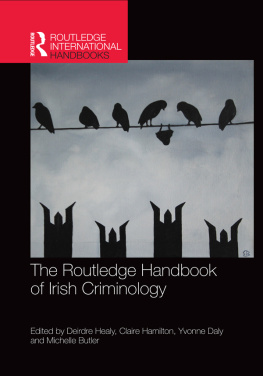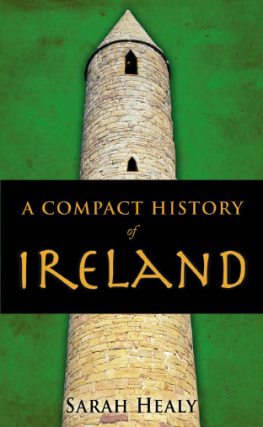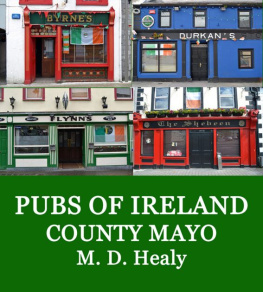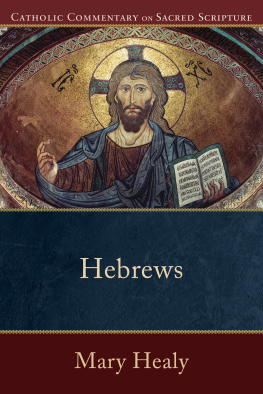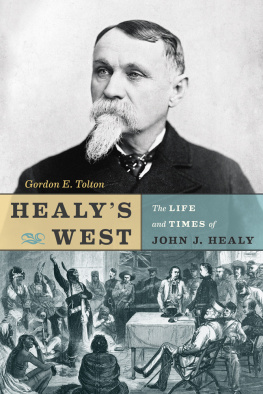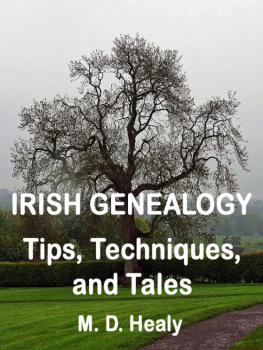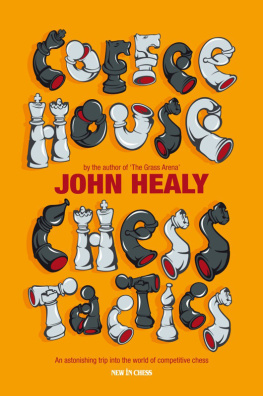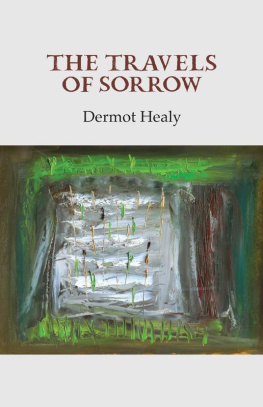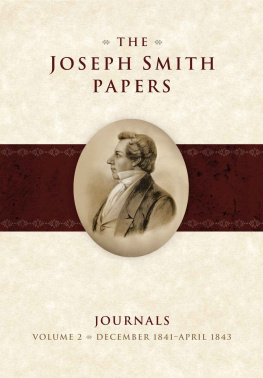John Healy (1841?1918) - The Ancient Irish Church (1892) By: John Healy (1841-1918)
Here you can read online John Healy (1841?1918) - The Ancient Irish Church (1892) By: John Healy (1841-1918) full text of the book (entire story) in english for free. Download pdf and epub, get meaning, cover and reviews about this ebook. year: 2017, publisher: CreateSpace Independent Publishing Platform, genre: Religion. Description of the work, (preface) as well as reviews are available. Best literature library LitArk.com created for fans of good reading and offers a wide selection of genres:
Romance novel
Science fiction
Adventure
Detective
Science
History
Home and family
Prose
Art
Politics
Computer
Non-fiction
Religion
Business
Children
Humor
Choose a favorite category and find really read worthwhile books. Enjoy immersion in the world of imagination, feel the emotions of the characters or learn something new for yourself, make an fascinating discovery.
- Book:The Ancient Irish Church (1892) By: John Healy (1841-1918)
- Author:
- Publisher:CreateSpace Independent Publishing Platform
- Genre:
- Year:2017
- Rating:5 / 5
- Favourites:Add to favourites
- Your mark:
- 100
- 1
- 2
- 3
- 4
- 5
The Ancient Irish Church (1892) By: John Healy (1841-1918): summary, description and annotation
We offer to read an annotation, description, summary or preface (depends on what the author of the book "The Ancient Irish Church (1892) By: John Healy (1841-1918)" wrote himself). If you haven't found the necessary information about the book — write in the comments, we will try to find it.
The Ancient Irish Church (1892) By: John Healy (1841-1918) — read online for free the complete book (whole text) full work
Below is the text of the book, divided by pages. System saving the place of the last page read, allows you to conveniently read the book "The Ancient Irish Church (1892) By: John Healy (1841-1918)" online for free, without having to search again every time where you left off. Put a bookmark, and you can go to the page where you finished reading at any time.
Font size:
Interval:
Bookmark:

The History of the Ancient Irish Church has an importance of its own. It concerns not merely the Irishman who naturally desires to learn how Christianity came to be preached in his own land, for the subject is of scarcely less interest to the dweller in England or Scotland. The former finds in Ireland the counterpart of the old British Church, and traces to that island, besides, the source whence much of the Christianity of the Anglo-Saxon was first derived. As he marks how from time to time the English Church struggled for libertyhow, long before the time of the Reformation, the authority of the Pope was resisted or rendered only a grudging recognitionhe will rightly trace this independent spirit to the tone originally given to the Church by the Celtic missionaries. The latter looks to the Church of Ireland as the parent Church of his own. The story of lona, and of the conversion of the tribes of Caledonia, is as much Irish as it is Scotch. But to the student of general Church History, Ireland is also important. Just as, in some unfrequented islands, types of animal and vegetable life exist which have become extinct elsewhere, and by study of these we may learn much of the former fauna and flora of places where all the conditions of life have changed: so Ireland retained rites and ceremonies and forms of government long after they had ceased to exist in every other country. In this way we may learn much of the general state of the Church in the fifth century from the state of Ireland as late as the twelfth.
- A convenient edition of these works has lately been issued by the Religions Tract Society.
EARLY CHRISTIANITY.
Before the close of the fourth century the Christian Church had passed through many vicissitudes and had gained many victories. When the contest began between the small company of believersdespised and persecuted as they wereon the one hand, and the great power of Imperial Rome on the other, few would have ventured to predict that Christianity would ever take the place of paganism as the religion of the multitude; and yet, long before the time of which we write, it had been shown that the weakness of God is stronger than men, and that He in His great providence had chosen the weak things of the world to confound the things that are mighty. As early as the time of Justin Martyr, the Christian apologist could boast that 'there is no race of men, whether of Barbarians or of Greeks, or bearing any other name, either because they live in wagons without fixed habitation, or in tents leading a pastoral life, among whom prayers and thanksgivings are not offered to the Father and Maker of the universe, through the name of the crucified Jesus.' But in the year 400 it needed not that an apologist should direct attention to the fact. The old worships were already for the most part forgotten. The temples of the gods had been destroyed or turned to Christian uses. The spread of Christianity was in some respects a more striking fact then than it is even at the present moment, for the diffusion of knowledge and the discoveries of modern times have revealed to us the existence of millions who have not as yet heard the sound of the Gospel; whereas in that age men's minds never went much beyond those countries which were subject to the imperial power. 'All the world' was to them synonymous with the Roman Empire, and in this sense, 'all the world' was Christian.
Font size:
Interval:
Bookmark:
Similar books «The Ancient Irish Church (1892) By: John Healy (1841-1918)»
Look at similar books to The Ancient Irish Church (1892) By: John Healy (1841-1918). We have selected literature similar in name and meaning in the hope of providing readers with more options to find new, interesting, not yet read works.
Discussion, reviews of the book The Ancient Irish Church (1892) By: John Healy (1841-1918) and just readers' own opinions. Leave your comments, write what you think about the work, its meaning or the main characters. Specify what exactly you liked and what you didn't like, and why you think so.



